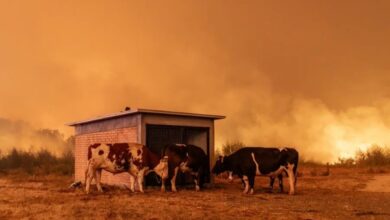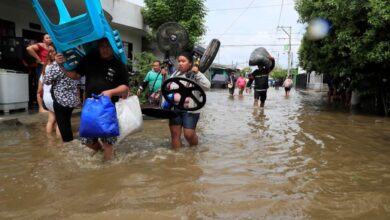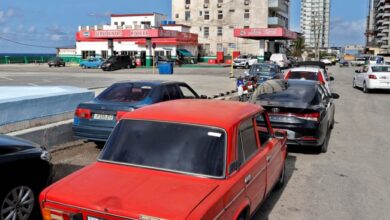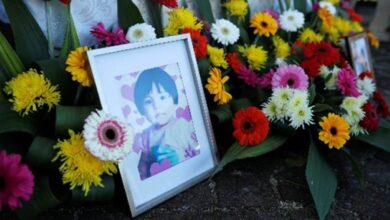Black River After the Storm: Jamaica’s Battle Between Hunger, Hope, and the Sea
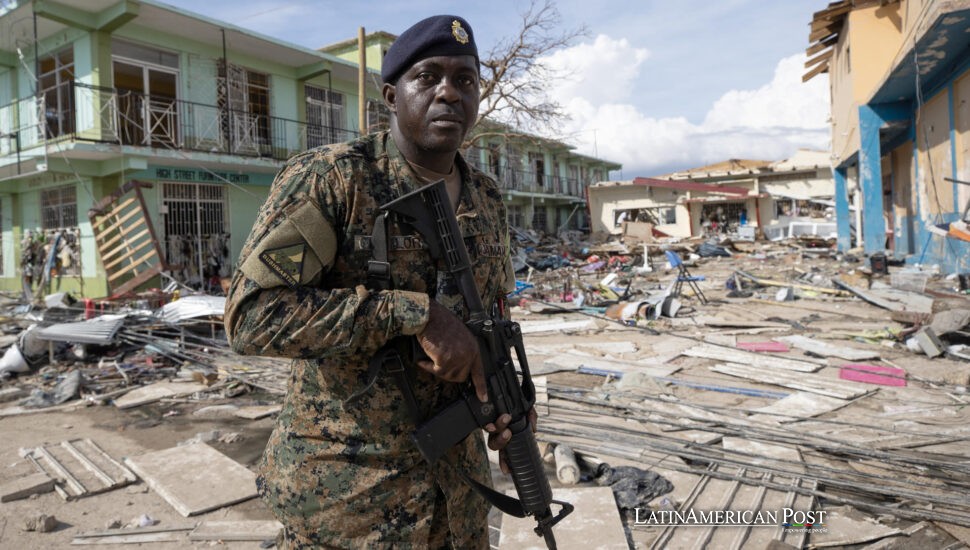
At dawn, the air over Black River carries two sounds: the slap of waves against wreckage and the murmur of people asking, Who’s still missing? Hurricane Melissa, the most powerful storm to hit Jamaica in decades, did not just rip through the coast—it rearranged life itself. Roofs hang from wires, streets glisten with broken glass, and families wander through a geography they no longer recognize. What was once a fishing town of routine and rhythm now feels like an unfinished sentence written in mud.
A City Leveled and a Nation’s Conscience Tested
In the capital of St. Elizabeth Parish, even the strongest walls gave way. Storefronts gape open like pulled teeth; zinc roofs lie twisted across the pavement. The church, once the anchor of town life, is now a tangle of pews and shattered stained glass—a ruin where prayers sound like wind.
When Melissa made landfall as a Category 5 hurricane, chaos moved faster than rescue. EFE witnessed soldiers confronting looters near the harbor, rifles raised against the desperation that follows every disaster. “There are people who come into town and rob every business, every establishment, because of the havoc the hurricane caused,” police officer Alan Markson told EFE, his voice hoarse with fatigue. Behind him, the horizon looked like a scrapyard of lives: homes flattened, fishing boats tossed inland like toys, the sea itself still littered with debris.
“It’s a total disaster,” Markson said, as if adjectives had run out of strength. And yet, amid the wreckage, people still moved—dragging boards, searching for loved ones, sweeping shards from what remained of their homes. In Black River, survival began before the storm ended.
Hunger, Heat, and the Arithmetic of Survival
By midday, hunger arrived, right on schedule. With farmlands shredded and markets flooded, food became the town’s new currency. Jamaica’s agriculture minister, Floyd Green, told EFE that Melissa “hit hard—crops gone, livestock gone, a season lost.” In a country where food security already hangs by a thread, the loss of a single harvest feels like famine on credit.
Under a pitiless sun, a line curved down the street where volunteers ladled out rice and beans. Older women held empty pots; children stood barefoot in the heat. “People are trying to recover from everything that happened—they lost everything,” said Marlon Legester, a local merchant who helped distribute food. “Without house, without food, without anything… the town is almost destroyed.“
He paused when asked about the missing. “Nine,” he said quietly. “Nine, we haven’t found.” Across St. Elizabeth, eight bodies had been recovered; nineteen deaths were confirmed nationwide. Numbers flatten tragedy, but in Black River, they are survival math—how much gas left in the generator, how many phone charges left, how many hours before dark.
The lines for food double as lines for water, for news, for reassurance. With electricity gone and communications crippled, rumor fills the silence. Every face wears the same calculation: how much longer can we hold on?
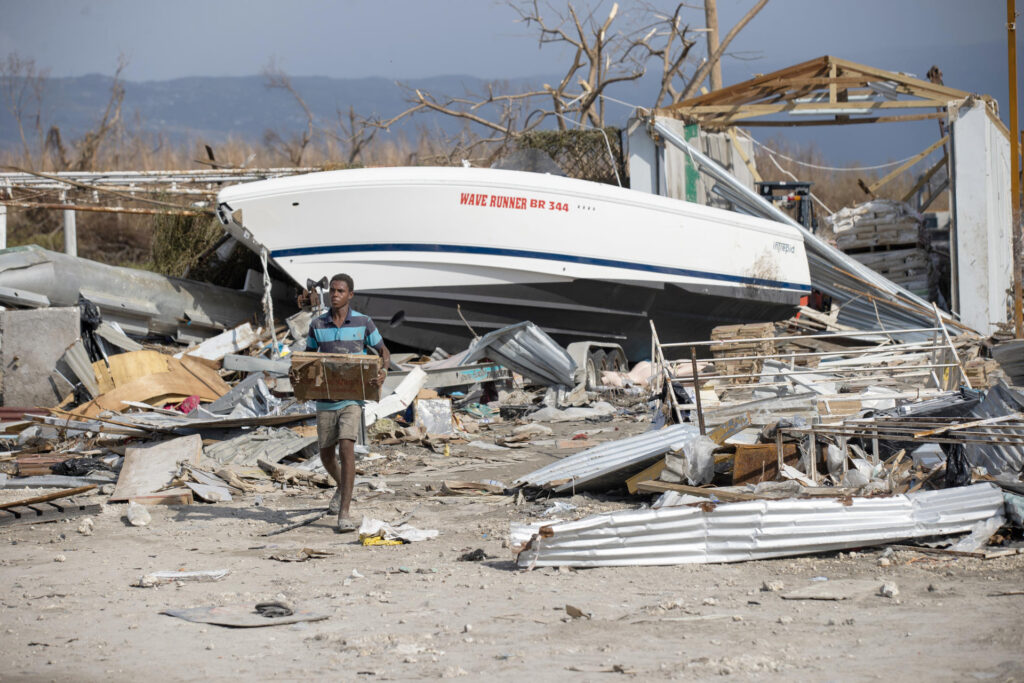
Law, Mercy, and the Line Between Them
In the storm’s aftermath, law and mercy began a dangerous dance. Patrols circled the market, chasing looters while trying not to criminalize hunger. Markson, still in uniform, knows the line is thin. “We have to keep the peace, but we also have to understand the pain,” he told EFE.
Relief trucks have started to arrive, but not fast enough. Curfews are enforced before food deliveries reach everyone, fueling tension. Security without aid is a powder keg. In this town, order can’t just mean guns—it must also mean groceries.
“If people have nothing, you can’t just tell them to wait,” said one exhausted volunteer stacking boxes of water bottles. He wouldn’t give his name; he was afraid of sounding ungrateful. Yet his point echoed everywhere: patrols alone cannot rebuild trust.
Every disaster forces a moral choice—punish or protect, condemn or comprehend. For now, Jamaica’s soldiers and civilians are improvising both. Some guard pharmacies to prevent theft; others form human chains to distribute supplies evenly. Each gesture feels fragile but necessary. As Markson told EFE, “We’re holding the line until things calm down. But we know calm won’t feed anyone.“
Rebuilding Stronger Must Be More Than a Slogan
The drive from Santa Cruz to Black River tells the story better than any statistic. Fallen trees cut the road into segments; drivers stop to saw branches, turn engines into chainsaws. The hospital and police station are half-ruined, their walls sweating moisture and salt. “Jamaica has faced adversity once again,” Prime Minister Andrew Holness said during a visit to the area, promising to rebuild “stronger.“
It is the right word. It just has to mean something.
Stronger must mean roofs built to code and enforced to code. It must mean pre-positioned food stocks and backup communications that don’t die with the first power line. It must mean cash assistance that lands before hunger turns into panic. Stronger must also tell the government to move at the speed of its citizens—the same speed with which neighbors already clear roads, share batteries, and set up makeshift kitchens.
Legester, the shopkeeper who now hands out meals instead of merchandise, believes the solution is unity. “The community needs to come together more—to build a better Black River, better service for the people,” he told EFE. And Markson, still patrolling streets lined with rubble, echoed the sentiment: “Reconstruction first—and readiness for the unexpected.“
Because the unexpected, in the Caribbean, has become the rule.
Hurricanes no longer visit; they occupy. Each one tests the country’s promises, its planning, its conscience. To rebuild stronger, Jamaica must measure success not by speeches or blueprints, but by what happens when the next storm comes—and whether families in towns like Black River can face the wind without fearing hunger more than rain.
For now, strength looks like neighbors pushing fallen trees together, mothers rationing rice for one more day, police officers setting down rifles long enough to help lift debris. It seems like a town rediscovering itself, one act of stubborn mercy at a time.
And until the lights return and the sea grows quiet again, that will have to be enough—the fragile kind of strength that outlasts the storm.
Also Read: Brazil’s Bloody Mirror: The PCC, the CV, and a War the State Keeps Losing

